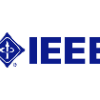Artificial intelligence (AI) enabled products and services are becoming a staple of everyday life. While governments and businesses are eager to enjoy the benefits of AI innovations, the mixed impact of these autonomous and intelligent systems on human well-being has become a pressing issue. This article introduces one of the first international standards focused on the social and ethical implications of AI: The Institute of Electrical and Electronics Engineering (IEEE) Standard (Std) 7010-2020 Recommended Practice for Assessing the Impact of Autonomous and Intelligent Systems on Human Well-being. Incorporating well-being factors throughout the lifecycle of AI is both challenging and urgent and IEEE 7010 provides key guidance for those who design, deploy, and procure these technologies. We begin by articulating the benefits of an approach for AI centered around well-being and the measurement of well-being data. Next, we provide an overview of IEEE 7010, including its key principles and how the standard relates to approaches and perspectives in place in the AI community. Finally, we indicate where future efforts are needed.
翻译:人工智能(AI)的辅助产品和服务正在成为日常生活的主干,虽然政府和企业渴望享受AI创新的好处,但这些自主和智能系统对人类福祉的混合影响已成为一个紧迫问题,本条款提出了第一批侧重于AI的社会和伦理影响的国际标准之一:电气和电子工程研究所标准(Std) 7010-2020 评估自主和智能系统对人类福祉影响的推荐做法。将福祉因素纳入AI整个生命周期既具有挑战性又紧迫性,IEE 7010为设计、部署和采购这些技术的人提供了关键指导。我们首先阐述了以福祉和福祉数据计量为核心的AI方法的好处。接着,我们概述了IEEE 7010, 包括其关键原则以及标准与AI社区现有方法和观点的关系。我们指出今后需要做出哪些努力。




